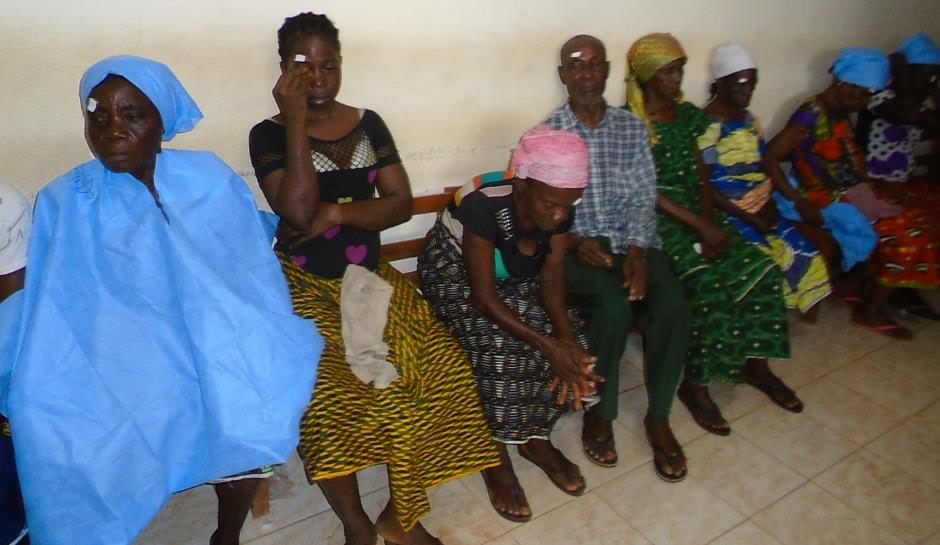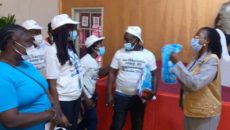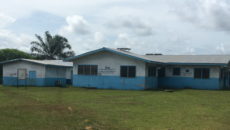HARPER, Maryland – The National Eye Health Program has completed free cataract surgeries for 86 persons during a four-day campaign at the J.J. Dossen Memorial Referral Hospital in Harper.
Dr. Joseph Kerkula, the program officer for the National Eye Health Program, told The Bush Chicken that the Southeast region was a priority for the program because most doctors are concentrated in Monrovia and are afraid to take an assignment outside the country’s capital. He said Grand Gedeh and River Gee would also be targeted.
Kerkula said the only cataract surgeon in the region, who used to be based in Zwedru, Grand Gedeh, left the program. However, another doctor is currently practicing with the team to take up an assignment in the region to serve Maryland, River Gee, Grand Gedeh, Grand Kru, and Sinoe. An additional doctor is also expected to join soon.
He said patients who benefited from the surgery were suffering from cataracts, a curable medical condition affecting the eye. Cataracts are caused by a build-up of protein that clouds the eye’s lens, which can lead to blurred vision and, eventually, blindness.
Kerkula said the condition generally affects older persons, but in developing countries it is a significant problem for children too. In fact, he says cataracts are thought to cause up to 60 percent of blindness in parts of Africa, and 20 million people worldwide are blind because of the condition.
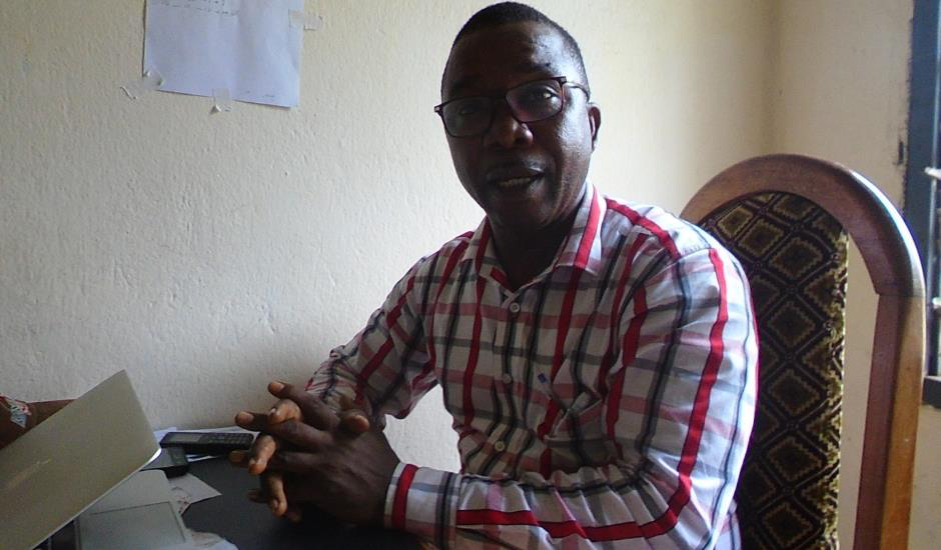
Dr. Joseph Kerkula, National Eye Health Program Officer. Photo: George K. Momo
According to Kerkula, the amount to blindness in the southeast is due to cataracts. He quoted a survey conducted in 2012 that reported that cataracts constituted 60 percent of the eye sicknesses in the region.
“The surgery here today is free of charge, but let the people know that it will not continue to be free because people must be able to pay for health services,†he added. “I also want to call on the people of Maryland, [the] southeast, and Liberia to take this eye care program as their own in order to maintain it because [the] eye is very important to human beings.â€
Kerkula said old age, trauma, gender imbalance, shortage of human resources, and harmful traditional practices were all factors leading to the relatively high level of blindness in the country. He called on Liberians to regularly seek medical care for their eyes.
The Ministry of Health is working with Sightsavers International on this project to reduce blindness across the country. The international NGO is also working to eliminate two neglected tropical diseases in Liberia – river blindness and lymphatic filariasis (also known as elephantiasis) – by distributing medication each year to communities at risk.
Sightsavers has been helping the ministry diagnose and treat cataracts and refractive error. Health workers, teachers, and community volunteers are given short eye health training courses, so they can screen people in communities and schools, ensuring that children with eye conditions receive the support and treatment they need.
The beneficiaries of the program thanked the Ministry of Health and the program for restoring their sights. Several middle-aged women mentioned that they had lost their sights for more than eight months.
The Eye Care supervisor of Maryland, Joseph Tamba, said the patients were recruited for the surgery based on a survey conducted by the county’s Eye Care department at J. J. Dossen.
He noted that many eye problems seen in the county were caused by aging and trauma. However, he also warned Marylanders against eating cassava because it contains cyanide. Cassava, when consumed raw, can release the poison into the body, which can contribute to blindness.
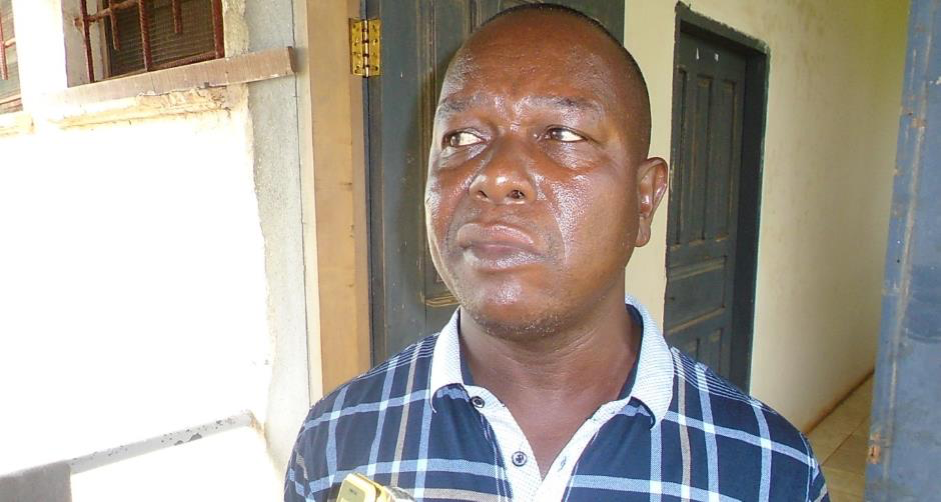
Joseph Tamba, Eye Care supervisor of Maryland County. Photo: George K. Momo
“We want everyone to utilize the hospital; people should not be taking herbs. Please make use of J.J. Dossen,†Tamba said. “We have the equipment here to treat your eye problems, we will give you technical advice and if we cannot make it, we will refer you for surgery or further treatment.â€
He said the county would conduct another outreach shortly, to identify more people in need of eye surgeries.
Featured photo by George Momo
